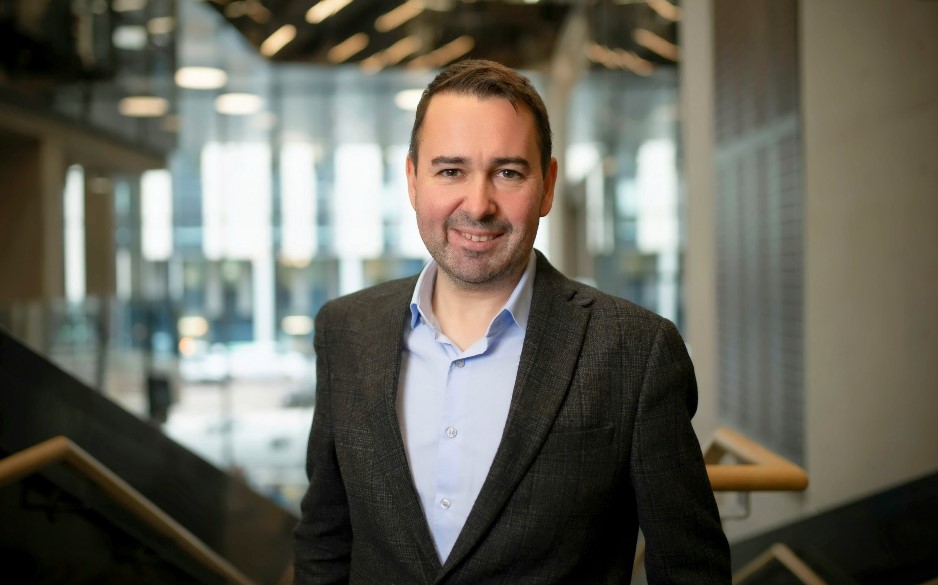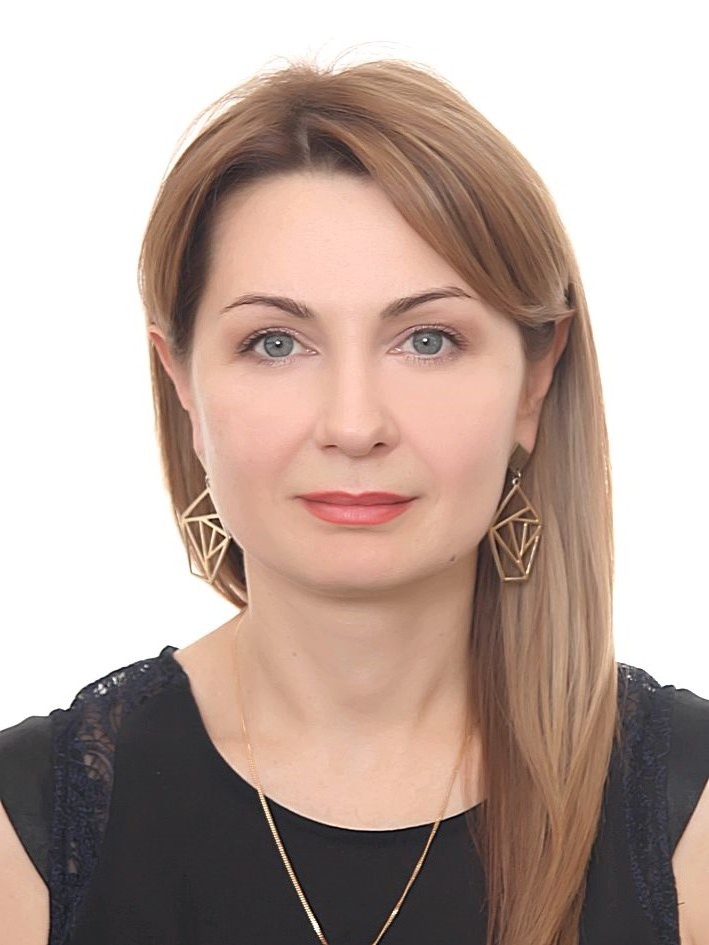Touching reflections on “The Diversity of Hope” – the keynote speakers’ personal reflections on hope in the midst of conflicts | Harticle
The Annual Youth Research Conference 2023 will be held this week on 8th-9th November at the Humak Helsinki campus. The theme of the days is Diversity of Hope. We want to remind you all that young people have the right to hope. Our role as adults: parents, teachers, researchers, youth workers, etc. is to enable young people to experience hope.
We are honoured to present two interesting keynote speakers, who will share their reflections on two conflicts in Europe today, reflecting their own experience and research. On Wednesday, we will focus on an idea of hope in the conflict in Northern Ireland. The challenging situation has been going on for over a hundred years.
Senior Lecturer, Dr Philip McDermott from Ulster University will open us a point of view about the situation in Northern Ireland under the title “Considering the ‘process’ in Peace: Young People, hope and Reconciliation in Post-Conflict Northern Ireland 1998-Present Day“. On Thursday, we will as well have a special opportunity to hear the views of the situation of children and young people in the midst of war of aggression by Russia in Ukraine by Child Psychiatrist, Professor Olga Osokina from Donetsk National Medical University in Ukraine.
We asked keynote speakers Philip McDermott and Olga Osokina about their thoughts on hope and how they have found hope in their own lives. Their reflections are worth reading carefully. They will take us to almost hopeless places, but they give us hope. Without hope, it is difficult to find meaning in life.
Philip McDermott: “what gives me hope right now is the resilience of activism”

We will begin with Philip’s thoughts on hope in his life in Northern Ireland. We will let him tell us.
“My first memory of hope relates to the context that I am presenting at the conference. This relates for the need of others in positions of influence to provide that hope.
I remember I was about 7 years old. At that time in 1988 the conflict in Northern Ireland was still very prevalent with killings and bombings on a daily basis. Even as a child you were acutely aware of that.
As someone from a catholic (Irish) background I was aware that there was a division with those who viewed themselves as Protestant (British). In the city centre one day with my dad shopping I pointed to the Protestant Cathedral and said to my dad “I like that building but I know it’s not our church”, and he said “OK, let’s go up!”. Which was an incredibly brave thing to do at that time. He was responding to the inquisitiveness of a child
When we arrived, the wife of the minister asked if we were members of the congregation and my dad told her we were Catholic. I remember how much she welcomed us, explained the history of the building and talked about what the other children in the congregation did and she gave sweets – of course!
This, I remember vividly, and for me it was a moment where I realised, even at a young age that things can be done differently even in scenarios of great difficulty – which when I reflect on that was a source of great hope!
This was hope provided by two adults who were willing to provide some form of intercultural dialogue even to a small child. It’s a small example but one which shows the importance that we all have when we have a position of influence (no matter how small), to provide that hope. “
“In terms of what gives me hope right now is the resilience of activism, even in the most difficult of circumstances. Even when states crack down on activism and when social situations appear to be hugely chaotic, the resilience of activism comes through. And I’m not just talking about protesting on the streets or digital activism, I think even the conversations that we have at intergenerational level. I think that that aspect of human life is still quite resilient, even though we may get very frustrated with aspects of regional, national or global politics. “
“We need to strive for fairness, equality and continue the debate about how we should actually achieve this!”
Olga Osokina. “I remember the look of my son and often repeat his phrase “We will not give up.””

Olga’s thoughts of hope take us to Ukraine. Is it possible to experience hope in the midst of war? According to Olga, it is not easy, but it is still possible.
“A memorable incident where I felt hope was about two years ago. It was the spring of 2022, the beginning of the war in Ukraine. Then my son and I, with two suitcases, tried to get out of a city in Ukraine, where terrible fighting was taking place. I spent 21 hours driving without a break. The roads were jammed with many cars, which were also evacuating children. Everyone moved very slowly. Some people walked along the road with their suitcases.
We heard the sounds of explosions nearby, and warplanes were flying above us. When we were stuck in one of these traffic jams, I got out of the car to breathe and come to my senses. I remember that I then made phone calls, tried to plan our route, and prayed.
At that time, I had been driving for more than 10 hours; I was tense, upset and tired. I remember that my 9-year-old son also got out of the car and came up to me. Always restless and talkative, he sat patiently in the back seat of the car all these hours. In one hand he held his favorite toy, and with the other hand he took my hand and quietly told me: “Mom, we will not give up.” I looked at him and saw how much life, hope and faith there was in his eyes. We successfully overcame this path, and then realized our plans step by step. I remember the look of my son and often repeat his phrase “We will not give up.””
“Difficult situations happen in the lives of each of us. It could be war, the death of a close person, separation from someone you love, loss of health or dreams. In my opinion, it is important at the first stage to accept the new reality as quickly as possible and allow yourself to honestly express your emotions of anger, fear, and sadness, and not hold back your tears. However, after that, you should raise your head, stand on your feet and decide to be resilient, not to look for blame, and start acting on your values. As Winston Churchill said, «It doesn’t matter how many times you fall, what counts is how many times you stand up again».
For some people, values are the freedom to create and make their own choices, or to live in truth, love, and care for people, and for others it is spirituality and faith. In any case, a person who is honest with himself and acts according to his values will never lose meaning and hope in life. This is my rule of thumb.”
“In my opinion, every person has a powerful inner resource, and also has a light and dark side of his personality. And it’s also his choice which side he will fill with his resource. I hope that every person will ask himself how he wants to live his life, and what kind of person he ultimately wants to die – the person who destroyed and caused suffering, or the one who built and created. I believe in everything bright in people and I bet on just such a future. “
Philip and Olga’s thoughts on hope are truly touching. They give us the courage to hope. Their keynote in The Youth Research Conference will teach us about the “Diversity of hope”.
Authors: Philip McDermott, Senior Lecturer, Sociology within the School of Applied Social and Policy Sciences, Ulster University; Chair and Professor, Dr Olga Osokina, Kyiv Medical University, Donetsk National Medical University, Visiting professor at the University of Turku, the Research Centre for Child Psychiatry; Eeva Sinisalo-Juha, Senior Lecturer, Humak University of Applied Sciences; Sanna Haarlaa, Student, Conference trainee, Humak University of Applied Sciences and Anja Miettinen, student, conference trainee, Humak University of Applier Sciences
Publication day: 6.11.2023
Publieher: Humanistinen ammattikorkeakoulu
Series: Harticle | Hartikkeli
